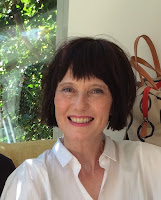Melanie Latham on Advertisements for Cosmetic Surgery and Beauty Practices

Melanie Latham This is the sixth in a series of posts about whether advertisements for cosmetic surgery and other beauty practices should be banned. Here Melanie Latham, Reader in Law at Manchester Law School, and Co-Investigator of the Beauty Demands project, gives her thoughts. If you would like to contribute to this discussion please email your response to Jan Kandiyali. Would you be in favour of banning all advertisements for non-invasive beauty treatments and/or cosmetic surgery? If you are not in favour of banning all advertisements would you be in favour of banning some - for instance for certain types of procedures? If so can you explain why for some and not all and how you would determine which should be advertised?Would you differentiate depending on where adverts were placed; for instance would you accept adverts in women's magazines where the intended audience is adult women, but not in public places where they would be seen by children?Alternatively do you
